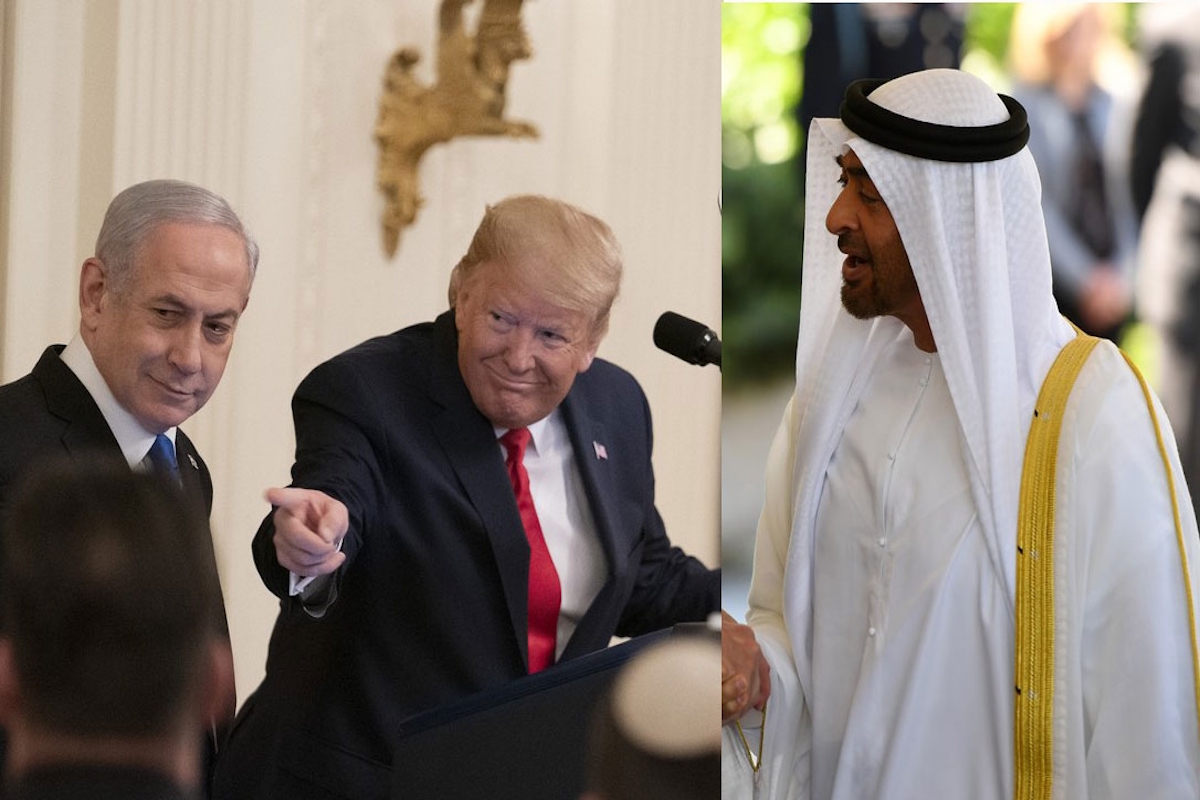Well as American President Donald Trump may claim a huge breakthrough in the Middle East with the decision by Israel and the United Arab Emirates to normalise bilateral relations, the telephonic accord reached on Thursday is at best a good starting point in what may well end up as a tortuous process, especially if it is to serve as a template for other countries in the region. That much is even evident from the tenor of the statements of the two countries, which appear far more nuanced than Mr Trump’s exuberant proclamation of a “huge breakthrough” (in all caps).
The UAE Crown Prince, Sheikh Mohammed bin Zayed has claimed an “agreement” with Israel that the latter would stop further annexation of Palestinian territories. Israeli Prime Minister Benjamin Netanyahu says his country has decided to “temporarily wait” on its annexation plan on a request from President Trump, a position quite distinct from the UAE’s understanding of an agreement to stop further annexation.
Advertisement
In effect, the deal appears to have been brought to fruition because of Mr. Trump’s desperate need to score a triumph amid the overwhelming gloom that envelops his bid for a second term as President. But while Mr Trump may claim headlines and even score a few debating points, the value of a foreign policy triumph in American domestic politics may be somewhat limited because of the myopic world view that most voters have.
They are likely to judge Mr. Trump far more on his record in handling the coronavirus outbreak than on a promise of peace in the distant Middle-east, a hope it must be emphasised that has been kindled more than once in past decades only to be doused by the intractability of the protagonists when it comes to the fine print.
In tangible terms, the accord may help the beleaguered Mr Netanyahu far more. Beset by a corruption scandal and facing daily public opposition for his handling of the public health emergency caused by the virus, the Israeli Prime Minister has desperately sought favourable winds to sail out of the storms of protest unleased by unfavourable public opinion.
Mr Netanyahu will hope the deal with the UAE forms the basis of recognition of the Israeli state by other countries in the Middle East. From the UAE’s perspective, the deal formalises what one observer has called “dating on the quiet” for the two countries over recent years had found common ground in the threat they perceived from Iran and in other shared regional perceptions. In the past decade or so, there has been a thaw in relations between the two countries, with some significant visits to the UAE by Israeli government functionaries.
Close relations had also been built between the UAE and the Foundation for Defence of Democracies, a staunchly pro-Israeli, neo-conservative think tank. Of course, the accord will leave the poor Palestinians, uprooted from their territories on the basis of a Biblical promise, wondering what the future holds for them.
